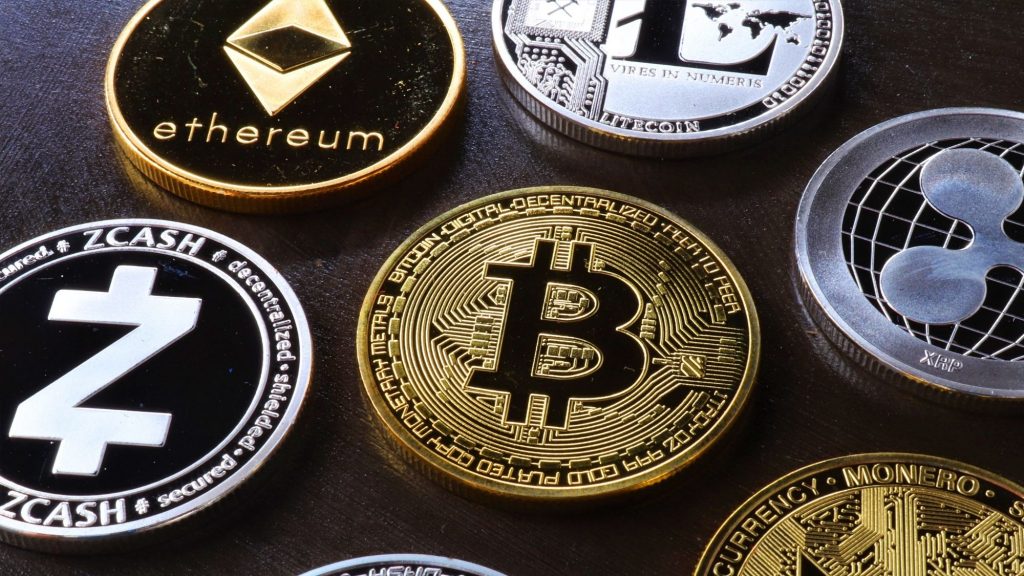LG’s 100-Inch QNED evo AI TV Redefines Big-Screen Viewing in South Africa In a bold leap forward for home entertainment, LG Electronics South Africa…
[Opinion] Cryptocurrencies: Africa’s new ‘blood diamonds’

Across the world’s troubled spots, resource wars and economic crises are being fuelled by a new kind of high-tech “blood diamond” – cryptocurrencies. This is the view of Pete Howson, a senior lecturer in the department of geography and environmental sciences at Northumbria University, Newcastle.
The Central African Republic (CAR) has become the latest country to adopt bitcoin as a national currency. The move follows last year’s adoption by El Salvador. But CAR’s sudden embrace of crypto is confusing. Afterall, El Salvador’s bitcoin adoption isn’t going well. Besides warnings by the International Monetary Fund and fears of default, a recent survey found 86% of Salvadoran businesses have never carried out a bitcoin transaction.
CAR, the world’s second-poorest country, is nowhere near ready for payments via cryptocurrencies. Yet CAR’s authorities threaten significant fines and other penalties on vendors who refuse to accept bitcoin for payments.
Some analysts say the adoption of crypto in CAR is meant to tick off the IMF and foreign-owned money transmitters. But unlike El Salvador, CAR doesn’t have a large pool of diaspora working overseas getting stung with remittance fees when sending money home.
So, is CAR trying to attract crypto-rich investors? Unlikely, as land-locked CAR lacks the beautiful beaches and other trappings of crypto hotspots elsewhere. CAR is also among the world’s worst countries for internet access. What about opportunities for bitcoin mining with cheap renewables? Only 14% of CAR’s population has some access to electricity. Over 90% rely on foraged wood and charcoal for cooking and heating.
Cryptocurrencies fund covert operations
While Salvadoran President Nayib Bukele makes his crypto proclamations with fanfare and fireworks, CAR President Faustin-Archange Touadera’s announcement last month featured a scanned copy of a press release, teeming with typos and posted on his Facebook page.
Touadera claimed it was necessary to “improve the conditions of Central African citizens” and make CAR “one of the world’s boldest and most visionary countries.” CAR’s former Prime Minister said the country’s crypto law was a rushed “proclamation”.
CAR also has major human rights issues. Human Rights Watch and United Nations experts recently said that since 2019, Russian fighters have been torturing, raping, and executing civilians across CAR with complete impunity.
CAR’s government relies on foreign military assistance to keep control, including through the Wagner Group, a private military security contractor with apparent links to the Russian government, and with a presence in other African countries, as well.
Bitcoin has enabled Russia to fund covert operations in Africa despite sanctions. Bitcoin enables clandestine funding for activists to expand Russia’s influence in sub-Saharan Africa.
READ MORE: One of Africa’s poorest countries adopts bitcoin as legal tender
Cryptocurrencies are also putting the brakes on decolonisation in Africa’s last colony, the disputed territory of Western Sahara, where Morocco recently gave the greenlight to Soluna, a U.S. bitcoin company, to develop a massive 900-Megawatt mining operation in the Saharawi region of Dakhla. According to Western Sahara Resource Watch, by setting up shop in the region, Bitcoiners are “strengthening Morocco’s belief that it can violate international law and human rights”.
Elsewhere on the continent, despite reported crimes against humanity by paramilitaries in Ethiopia, developers of the Cardano cryptocurrency are working with Ethiopian authorities to build digital-surveillance systems, including a digital ID and records system. Cardano hopes to roll out an Ethiopia-wide crypto-payment network, before connecting the entire African continent.
Much of Africa is rich in precious resources. In colonial times, to profit from these resources, European powers and their private companies capitalised on conflict. The term “blood diamond” became well-known, defined as any diamond sold to fund military action in diamond-rich areas of Africa. Our research shows that across the world’s troubled spots, resource wars and economic crises are the ideal conditions for globally trading a new kind of high-tech blood diamond – cryptocurrency.
- Pete Howson is a senior lecturer in the department of geography and environmental sciences at Northumbria University, Newcastle. His views does not necessarily reflect the opinion of Ventureburn.
READ MORE: Blockchain paves the way for social good in Zambia

